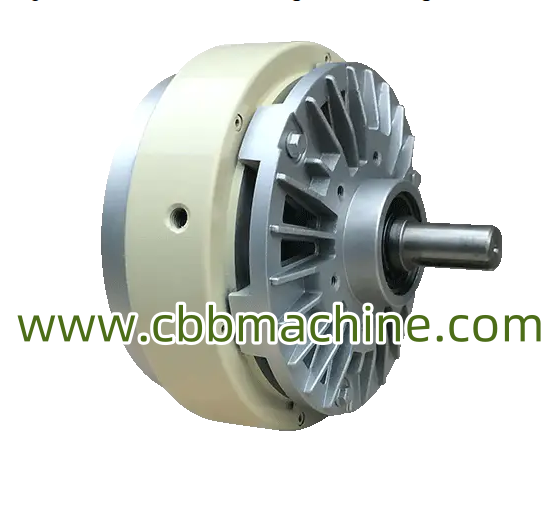The Critical Role of Differential Shafts in Manufacturing Processes
Differential shafts are an essential component in various industrial applications, particularly in machines that require precise control over the tension and motion of multiple rolls of material. These shafts are vital for maintaining the integrity of the product and ensuring smooth operation across multiple industries, including textile, printing, packaging, and more. As a Differential Shaft Supplier , we understand how important it is to provide reliable, high-quality differential shafts that meet the specific needs of manufacturing processes.
What is a Differential Shaft?
A differential shaft is a mechanical component designed to control the tension between multiple rolls of material, ensuring each roll moves at the correct speed and tension. It is often used in equipment that deals with multiple rolls of material, such as paper, fabric, or plastic film, in processes like slitting, rewinding, and winding. The primary function of the differential shaft is to regulate the speed of the rolls, ensuring they remain in sync without excessive tension or slack.
The differential shaft achieves this by using a differential mechanism that divides the input torque, allowing the tension on each roll to be independently adjusted. This feature is crucial for processes where different rolls of material are under different levels of tension, such as when one roll is larger than the other or when the material requires varying tension at different stages of the production process.
Applications of Differential Shafts
Differential shafts play a critical role in various industries. Some of the key applications include:
Textile Industry: In textile manufacturing, differential shafts help maintain consistent tension on rolls of fabric during processes such as weaving, dyeing, and finishing. Proper tension is essential to prevent wrinkles, distortions, and uneven stretching of the fabric.
Printing Industry: In printing, differential shafts ensure that the paper or film rolls used in printing machines maintain the correct tension throughout the printing process. This is essential for achieving high-quality prints without defects, misalignments, or wrinkles.
Packaging Industry: Differential shafts are used in packaging machinery to control the tension of packaging materials such as films, foils, and papers. The ability to manage tension ensures smooth, wrinkle-free packaging materials, leading to high-quality finished products.
Coating and Laminating: In coating and laminating processes, differential shafts help ensure even application of coatings or adhesives, resulting in consistent product quality.
Key Benefits of Using Differential Shafts
As a Differential Shaft Supplier, it’s important to highlight the numerous benefits these shafts bring to industrial operations. Some of the key advantages include:
1. Improved Material Quality
One of the primary benefits of differential shafts is their ability to maintain consistent tension throughout the production process. This helps ensure that the material being processed remains smooth, wrinkle-free, and evenly stretched, resulting in high-quality finished products. Without proper tension control, materials are at risk of developing defects such as creases, tears, or misalignment, which can impact the product’s integrity.
2. Enhanced Operational Efficiency
Differential shafts allow for smoother and more efficient machine operation by regulating the tension across multiple rolls. By controlling the speed and tension of each roll, the shaft minimizes the risk of downtime due to material handling issues, allowing for continuous and efficient production. This leads to increased throughput and optimized machine performance.
3. Reduced Waste and Downtime
Proper tension management minimizes the chances of material breakage or stretching, significantly reducing material waste. Differential shafts ensure that the material moves smoothly, preventing issues such as tearing or misalignment, which could otherwise lead to product defects or discarded materials. Additionally, their role in preventing equipment malfunction reduces downtime, as fewer mechanical issues arise during operation.
4. Customization for Specific Applications
Another benefit of working with a Differential Shaft Supplier is the ability to customize the shaft to fit the unique needs of a specific manufacturing process. Different materials, machine types, and production requirements often demand specific designs or configurations for differential shafts. Custom solutions ensure optimal performance in diverse environments, from textiles to packaging to printing.
5. Increased Equipment Longevity
Differential shafts reduce the stress placed on the overall production system by controlling the tension evenly across multiple rolls. This helps extend the life of the equipment, as the differential shaft prevents unnecessary strain on motors, gears, and other mechanical components. By minimizing wear and tear, manufacturers can expect longer-lasting equipment and reduced maintenance costs.
Choosing the Right Differential Shaft Supplier
Selecting the right Differential Shaft Supplier is crucial to ensuring the success of your production processes. When choosing a supplier, there are several factors to consider:
Quality Assurance: Ensure that the supplier uses high-quality materials and follows rigorous manufacturing standards to produce durable and reliable differential shafts.
Customization Options: Look for a supplier who offers tailored solutions based on your specific production needs, whether it’s size adjustments, tension control mechanisms, or material compatibility.
Technical Expertise: A reliable supplier should have extensive knowledge of industrial machinery and differential shaft applications. This expertise ensures that they can provide valuable advice and support when needed.
After-Sales Support: Choose a supplier who offers excellent customer service and after-sales support, including troubleshooting, replacement parts, and maintenance assistance.
Delivery and Reliability: On-time delivery is essential to ensure your production line operates without delays. A trustworthy supplier should be able to deliver the required shafts on schedule.
Conclusion
Differential shafts are vital components in the manufacturing process, playing a crucial role in ensuring that tension is evenly distributed across multiple rolls of material. As a Differential Shaft Supplier, we recognize the importance of providing high-quality, reliable shafts to meet the needs of industries such as textiles, printing, packaging, and more. By choosing the right differential shaft and supplier, manufacturers can improve production efficiency, reduce material waste, and maintain consistent product quality.

